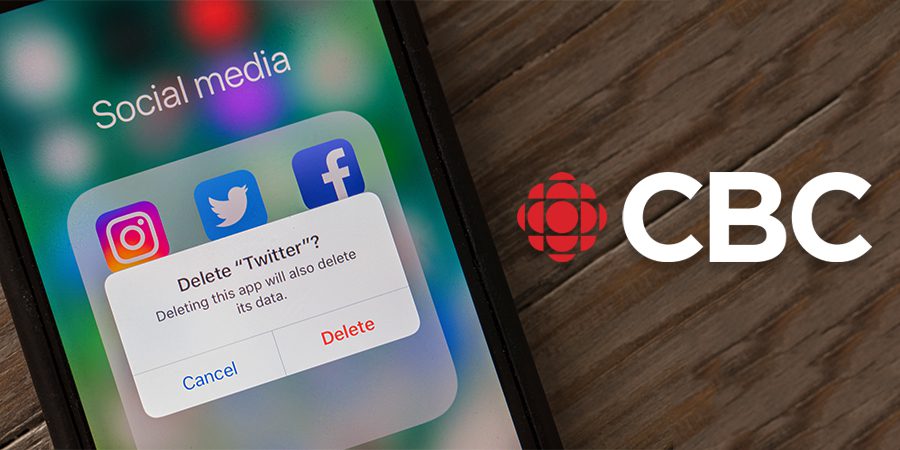In this article, we’ll explore why the Canadian Broadcasting Corporation (CBC) has decided to suspend its use of Twitter, joining other major media outlets in objection to the “government-funded media” label.
Key Takeaways:
- CBC “pauses” Twitter use due to “government-funded media” label
- BBC successfully changed its label to “publicly-funded”
- CBC is a Crown corporation, editorially independent from the government
- NPR and PBS quit Twitter over similar issues in the US
- CBC seeks re-examination of its designation from Twitter
Twitter’s Label Sparks Controversy Among Major Media Outlets
In a world where social media dominates the dissemination of news, Twitter has found itself in hot water.
The platform has been labeling major media outlets as “government-funded,” a move that has caused a growing wave of discontent among these organizations.
The Canadian Broadcasting Corporation (CBC) has become the latest media giant to suspend its use of Twitter, citing concerns over the label’s implication that the government may influence its editorial output.
This follows a similar move by National Public Radio (NPR) and the Public Broadcasting Service (PBS) in the United States, which also objected to the label.
CBC’s Editorial Independence and Funding Structure
The CBC is a corporation owned entirely by the Canadian government, known as a Crown corporation.
However, the Broadcasting Act ensures that the organization remains editorially independent, meaning that the government does not have a direct influence on its reporting.
Although the CBC does receive a significant portion of its funding from the government, it also generates revenue through advertising.
During the period of 2021-22, the CBC obtained over $1.2 billion Canadian dollars (which is equivalent to about US$900 million) from the government funding.
However, the CBC’s board of directors is responsible for deciding how this funding is allocated, ensuring that its journalistic integrity remains intact.
The International Exodus from Twitter Gains Momentum
The CBC’s decision to suspend its Twitter use marks a growing trend among international media outlets.
Earlier, the British Broadcasting Corporation (BBC) had successfully lobbied Twitter to change its label from “government-funded” to “publicly-funded,” after a quickly-organized interview with Elon Musk, who agreed with the BBC’s self-description.
This exodus from Twitter appears to be gaining traction across the globe, as media organizations increasingly express their dissatisfaction with the platform’s labels.
It remains to be seen how many more outlets will follow suit, and whether Twitter will respond to these concerns by re-evaluating its labeling policy.
Government-funded vs. Publicly-funded: The Debate Continues
The controversy surrounding the “government-funded” label has raised questions about the distinction between government-funded and publicly-funded media outlets.
While government-funded organizations receive direct financial support from the government, publicly-funded organizations obtain their funding through a mix of government grants, advertising revenue, and other sources.
In the case of the CBC, the organization’s funding structure comprises both government and advertising revenue, making the “government-funded” label misleading.
As the debate continues, it’s essential to consider the nuances of funding structures and the need for accurate labeling that reflects an organization’s true nature.
The Impact of Twitter Labels on Media Credibility
The use of labels by Twitter has sparked concerns about the impact on media credibility.
By labeling organizations such as the CBC, NPR, and PBS as “government-funded,” the platform implies a level of bias and lack of independence in their reporting.
This has led to fears that the labels could undermine the professionalism and accuracy of these organizations’ work.
The CBC has written a letter to Twitter, requesting them to reconsider the label given to them.
The Canadian Prime Minister, Justin Trudeau, has expressed his disapproval towards Pierre Poilievre, the leader of the Conservative Party of Canada, for his request to Twitter to label CBC.
Trudeau referred to it as an act of aggression towards a significant Canadian establishment.
Twitter’s initial response to these concerns has been less than satisfactory, with an auto-generated email bearing a poop emoji offered as a reply.
As the platform continues to face backlash from major media outlets, the need for meaningful engagement and potential policy changes becomes more pressing.
Conclusion
The CBC’s decision to suspend its Twitter use highlights a growing concern among major media outlets regarding the platform’s labeling policy.
As more organizations express their dissatisfaction, it remains to be seen whether Twitter will take action to address these concerns and reassess its labeling practices.
The distinction between government-funded and publicly-funded media is crucial to understanding the true nature of an organization’s independence and editorial integrity.
Failure to recognize and accurately label these differences could have lasting consequences on the credibility of media outlets and their relationship with social media platforms.
 Sections of this topic
Sections of this topic
















